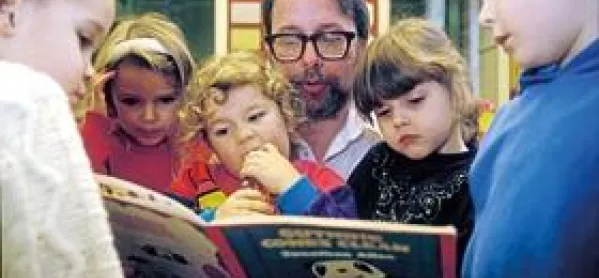Proving primary can be job for the boys

Many of the pupils at Gallions Primary School, in a deprived part of East London, do not have experience of positive male role models. On the estates where most of them live, single-mother families are the norm rather than the exception.
As a result, head Paul Jackson is “desperate” for pupils to work with inspiring, professional men - but like many primary leaders around the country he finds them to be thin on the ground. As it stands, just eight of the 70 staff at Gallions are male.
The issue of the number of men working in infant, junior and primary schools is almost as old as the profession. The assumption that female teachers will oversee primary classes is one of the most persistent in the labour market: no amount of social or cultural change - which has transformed the likes of nursing or police work - seems able to shift it.
The most recent statistics bear this out: in 2010, just 12 per cent of those teaching 4- to 11-year-olds in England were male, according to the General Teaching Council for England.
Despite the extent of the problem, primary heads like Mr Jackson are consistent in pushing the message that they are keen to see a more balanced gender mix in their staffrooms. And the government agrees, which is why this year hundreds of men will take part in an initiative designed to encourage more of their gender to undertake careers in primaries.
The Primary Experience Programme will give men the chance to spend 10 days getting first-hand insight into primary-school teaching. This academic year the scheme is limited to men with a 2:1 degree or higher who are considering going into teacher training from 2013. There will be 1,000 places on the programme. So far, 418 schools have signed up to offer work experience and 414 men have been “matched” to them.
The programme was piloted last summer. Of the 53 men who took part, 12 went on to apply for a teacher training course.
A total of 13 men have spent time at Gallions Primary over the past academic year. Some were recent graduates, others were looking to change career from backgrounds as varied as banking and art therapy. Another 12 to 15 will visit the school in 2012-13.
“The programme brought men from all walks of life. It was fantastic to see them having conversations with children, and pupils seeing them operate in a professional capacity,” said Mr Jackson, who has not had any male applicants for any of the recent job adverts he has placed. “It raised the self-esteem of boys, showed them something beyond the estate and showed them life doesn’t have to be about crime and unemployment.”
Charlie Taylor, chief executive of the Teaching Agency, said that he hoped the scheme would lead to more high-quality graduates going into the profession.
“Traditionally a lot of men haven’t thought primary teaching was for them, and that’s not for any particularly good reason. It might be because of their previous experience of education, where they were taught by women,” he said. “This is an opportunity for them to dip their toe in the water.”
He said that primary teachers have the chance to “get to know children much better, shape them and inspire them” and that “there is now the opportunity to do more specialist primary teaching, for example in maths or modern foreign languages”.
Focus groups run by the government have previously found that men dislike the idea of teaching several subjects and wrongly believe that there are fewer opportunities for career progression in primary schools and that the pay is worse.
James Noble Rogers, executive director of the Universities’ Council for the Education of Teachers, expressed his support for the initiative: “It should be effective. It gives men a chance to see what primary schools are like before they apply, and reassures people that teaching is something they want to do.”
Gender divide
Number of teachers and leaders in nursery and primary schools by sex as of November 2011:
- Men 27,000
- Women 165,300
Original headline: Proving primary teaching can be a job for the boys
Keep reading for just £1 per month
You've reached your limit of free articles this month. Subscribe for £1 per month for three months and get:
- Unlimited access to all Tes magazine content
- Exclusive subscriber-only stories
- Award-winning email newsletters
